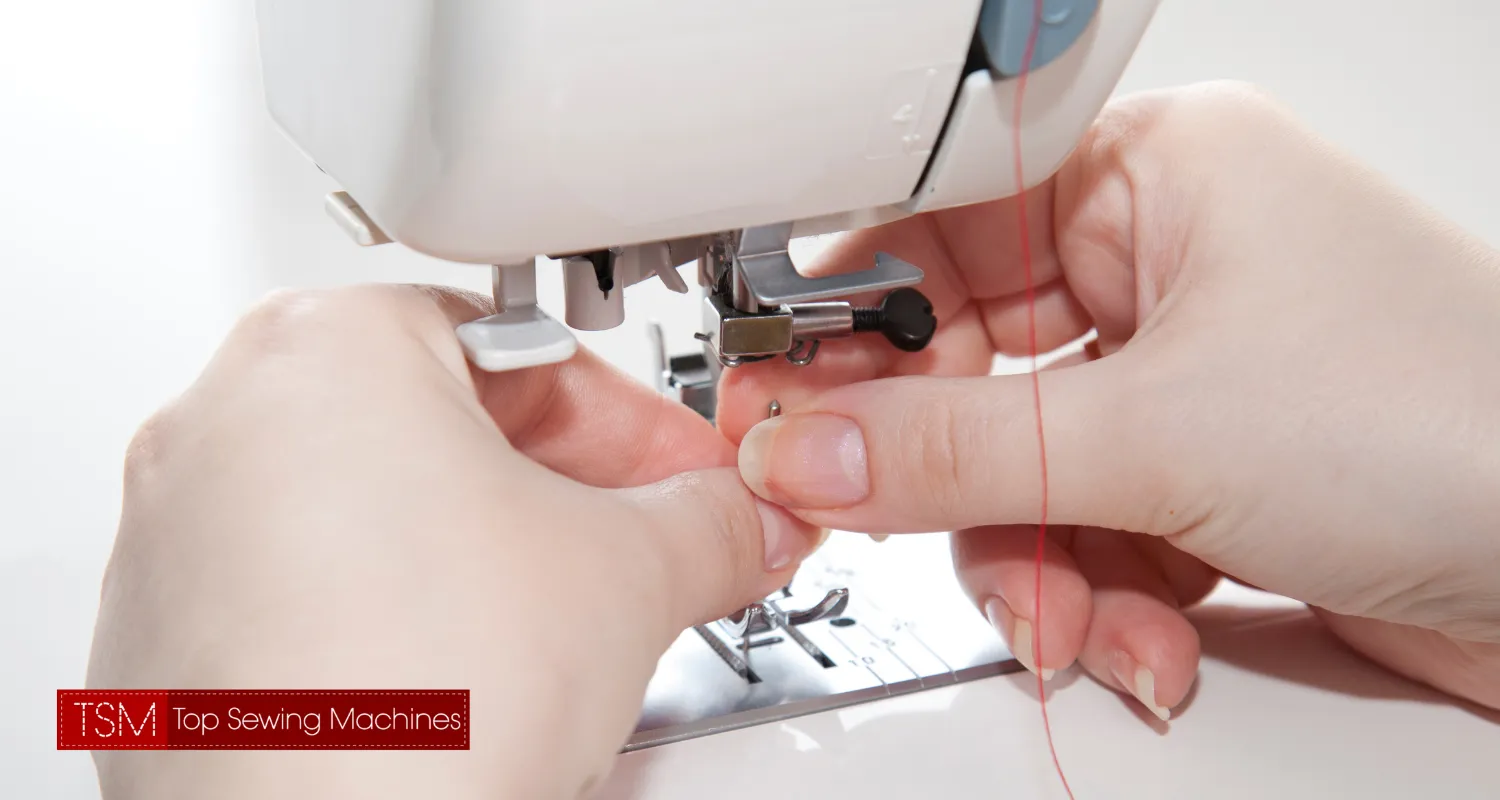Choosing the right needle for the fabric that you are sewing with is extremely important. If you are sewing with the incorrect needle, you can tear or rip your fabric, resulting in a low quality project.
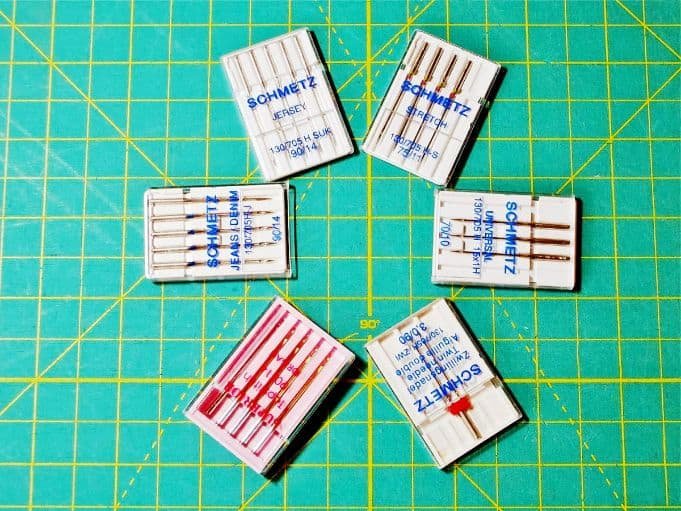
The correct size and type of sewing machine needle can affect the quality of your project. Make sure that you do not purchase cheap needles; if you spend more money on your sewing needles, you projects will turn out much better in the end.
Use a sharp universal needle in order to work with most cotton fabrics.
Depending on how heavy the cotton fabric is that you are using, you can opt for a heavier gauge needle. Keep reading to the end of this guide where we provide a helpful needle size list for you.
There are lots of different types of needles that you can choose to sew with on your sewing machine.
Universal sewing needles are definitely the most common types of needles used with sewing machines. With universal needles, you can sew synthetic fabrics, woven fabrics, and even several kinds of knit fabrics.
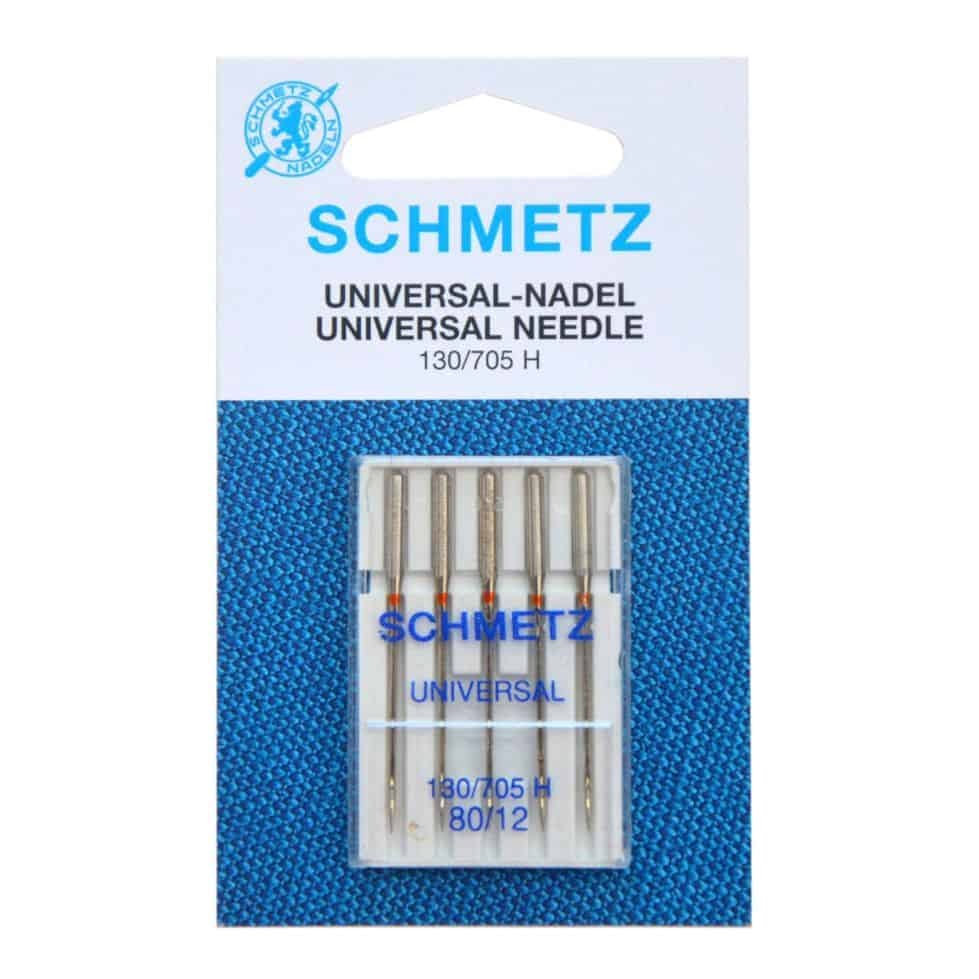
For more lightweight fabrics, be sure to use a finer universal needle and for especially heavy fabrics, use a larger one.
Ballpoint needles have a round tip instead of a sharp tip. This allows the needle to push fibres aside instead of penetrating through them.
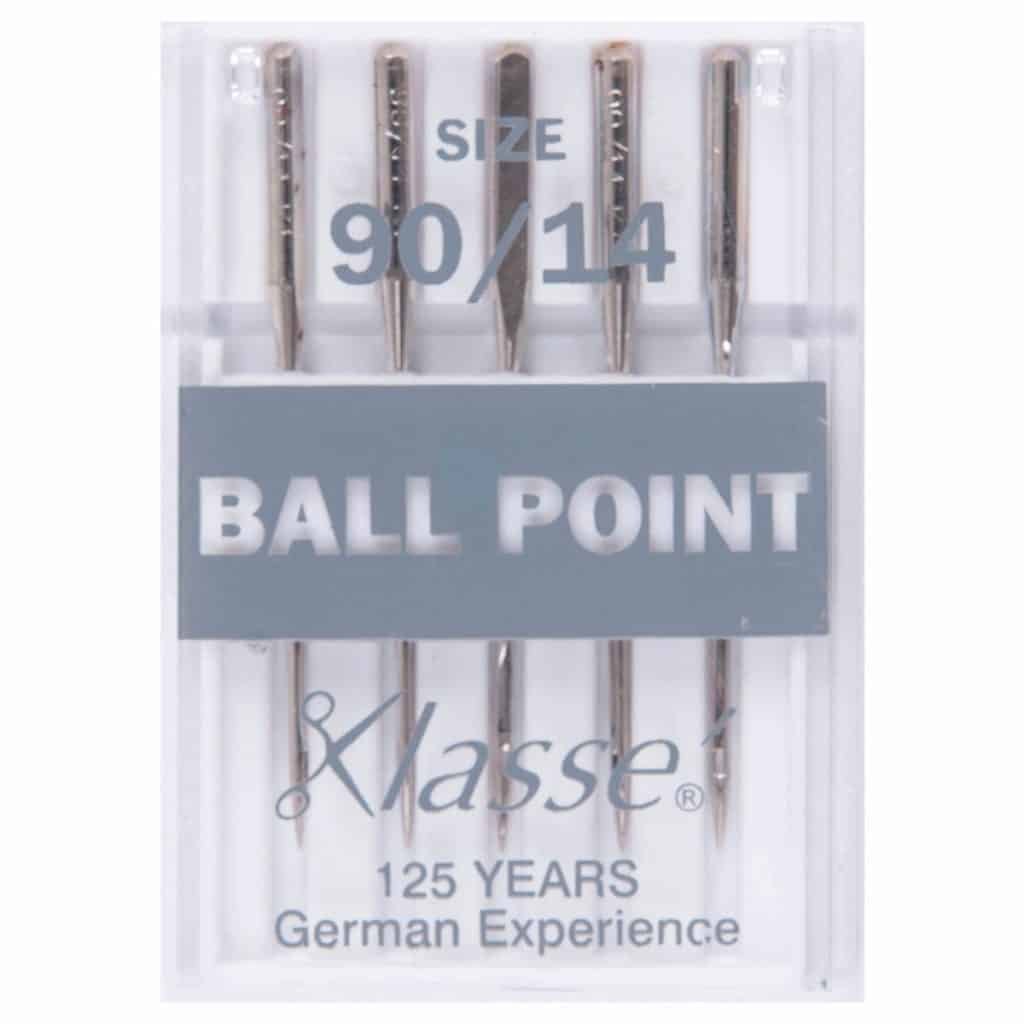
Ballpoint needles can be used with rib knits, interlock knits, cotton knits, and fleece.
These sharp needles are perfect for penetrating a few layers of fabric all at once. They boast a reinforced shaft and make for quick and even stitching.
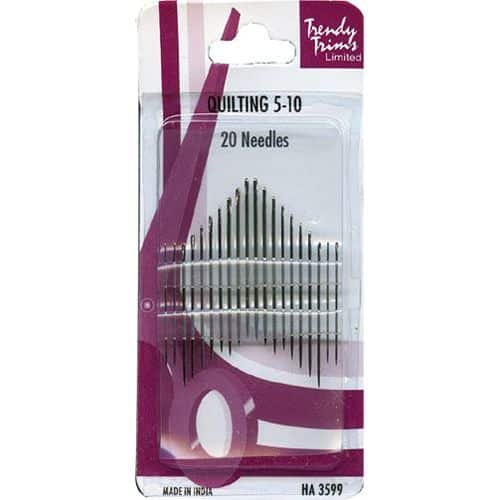
For beginner quilters, a size 7 or 8 quilting needle is suggested.
Denim needles are perfect for sewing with denim fabrics as well as with other densely woven fabrics. These needles have a very sharp point along with a strong shaft.
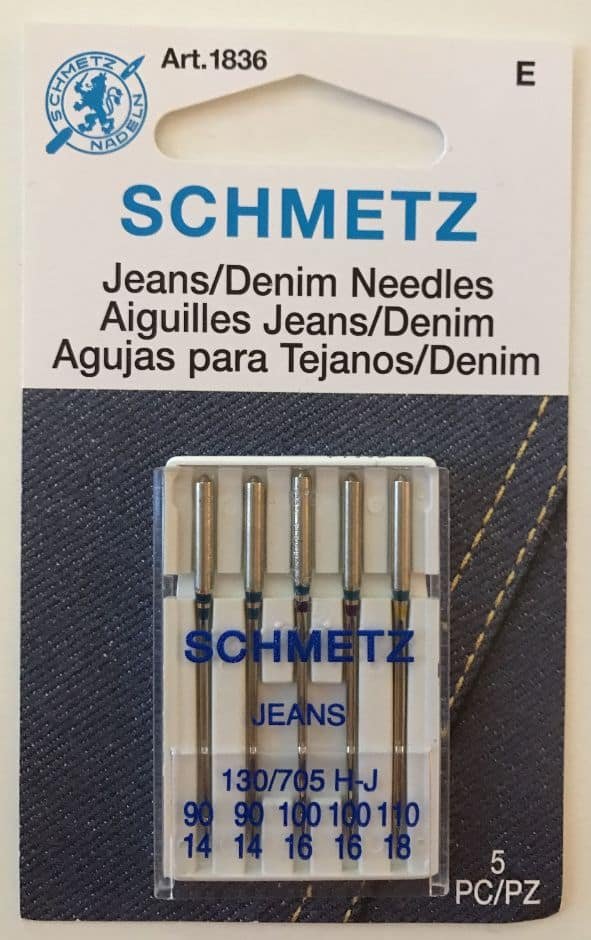
These needles can work with denim, twill, and even canvas.
Leather needles are also often times known as chisel-point needles. These needles should only be used with real leather and suede.
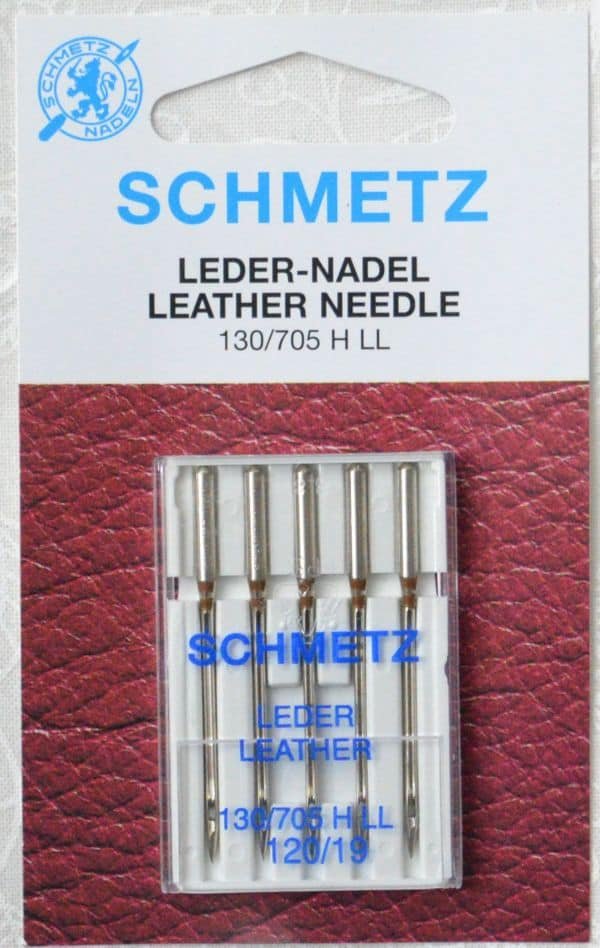
Do not use with fake fabrics, as the needle will not sew correctly with these.
Metafil fabrics should be used with metallic thread and metallic fabric.

These types of needles are great for embroidery fabrics and work on woven or knit fabrics.
Sharps needles are great to use while quilting. They are extremely fine and can easily penetrate several laywers of fabric and even wadding.

Sharps needles can be used with densely woven fabrics, silk, and microfibre.
Sharps needles create great buttonholes as well.
Twin needles are specialist needles used for techniques like pin tucking or decorative stitches.
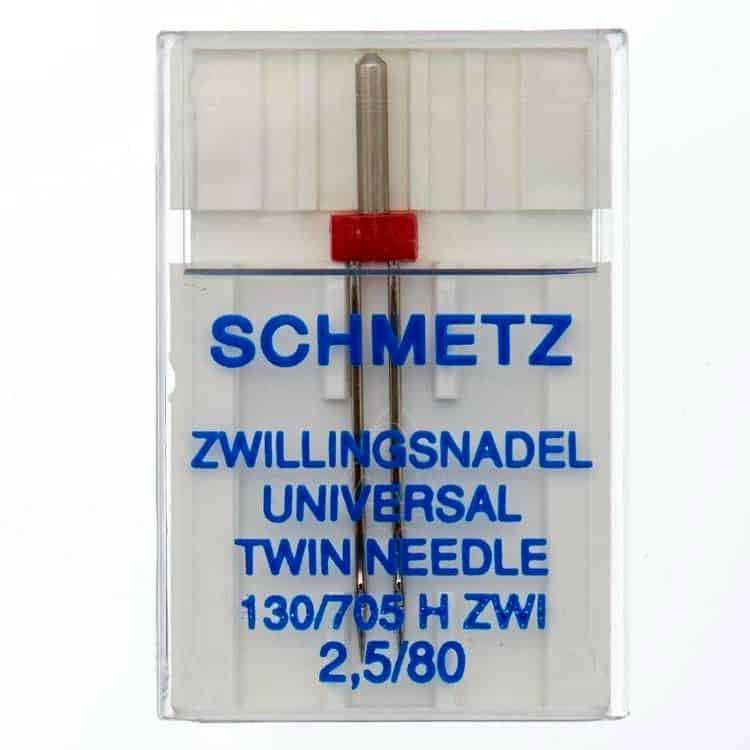
Twin needles should be used on a slow speed. They are not compatible with all sewing machines, so make sure to check your manual before you sew with a twin needle.
Wing needles are used for special decorative stitches. Wing needles punch holes in fabric to mimic drawn thread work.

Embroidery needles are very similar to metafil needles but have a bigger eye and a scarf to prevent skipped stitches. These needles work best on viscose, rayon, polyester, and cotton.
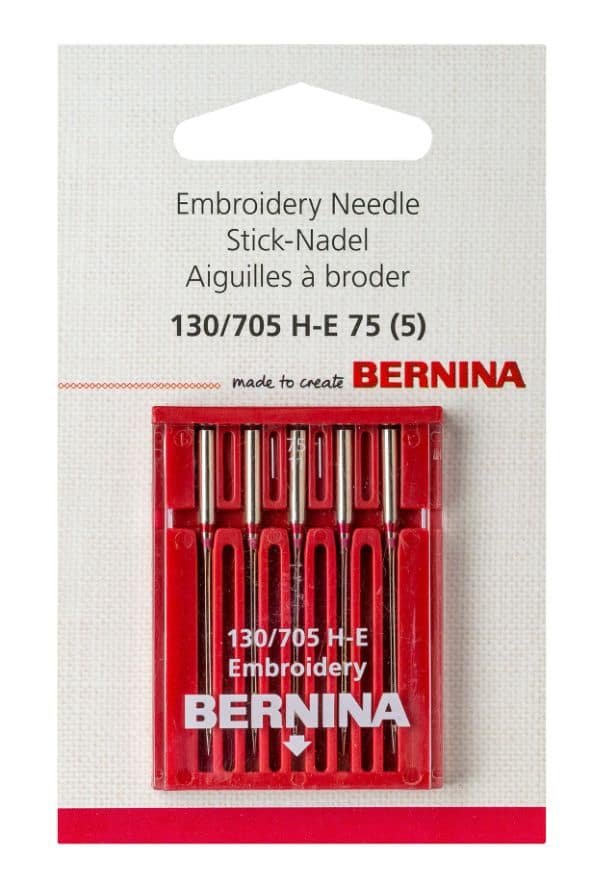
The needle size that you will use with your cotton fabric projects depends on what kind of cotton fabric you are using.
For medium weight cotton fabrics, you should use a universal needle or one that is size 80/12.
For heavier weight cotton, use a larger needle such as a size 90/14.
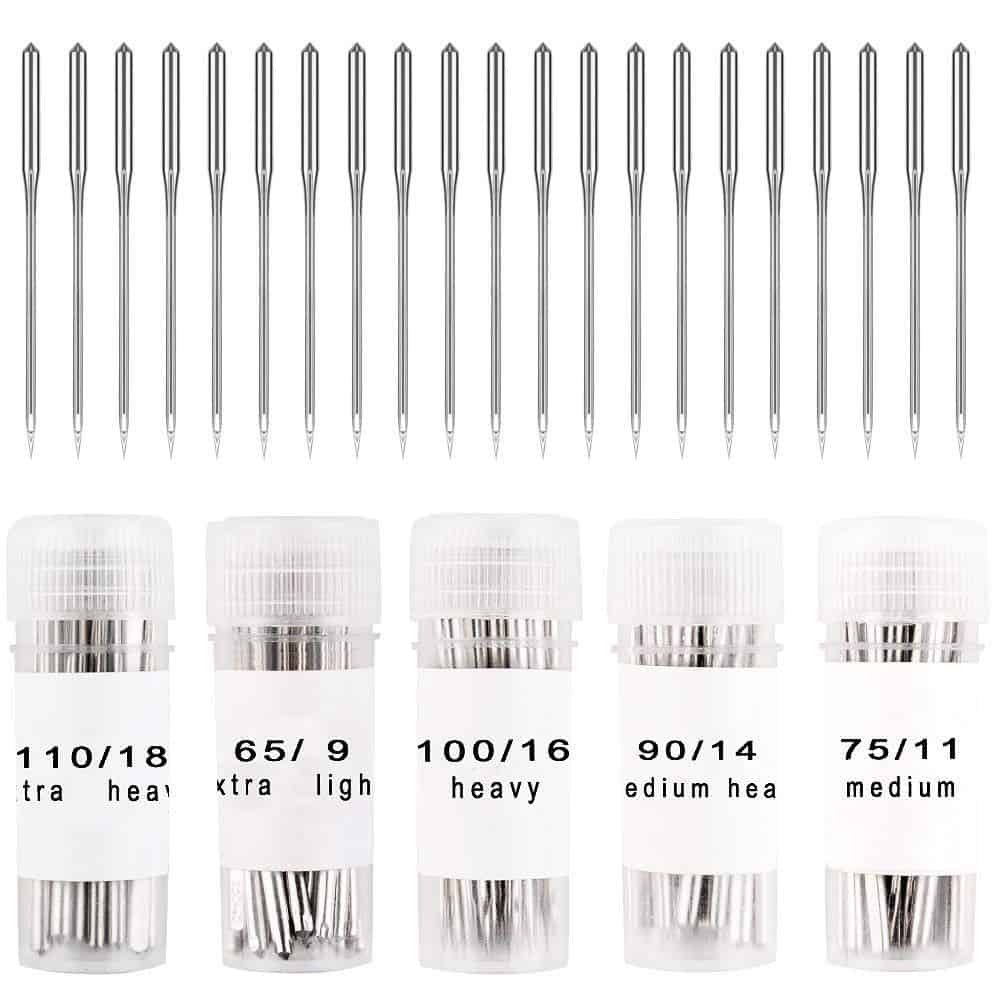
Below is a helpful beginner guide to what size needles you should use with what kinds of fabrics.
Before you begin sewing with your needle on your project, test the needle and thread on a sample of the fabric you will be working with.
Here are some commonly asked questions in regards to sewing machine needles.
Sewing machine needles may break because they are not the right kind of needle for the project that you are working on.
Your sewing machine needle should be changed every 6 to 8 hours of sewing or once you reach the end of a project. If you ever experience a stitching problem while working on your sewing machine, the first thing you should do it change your needle.


